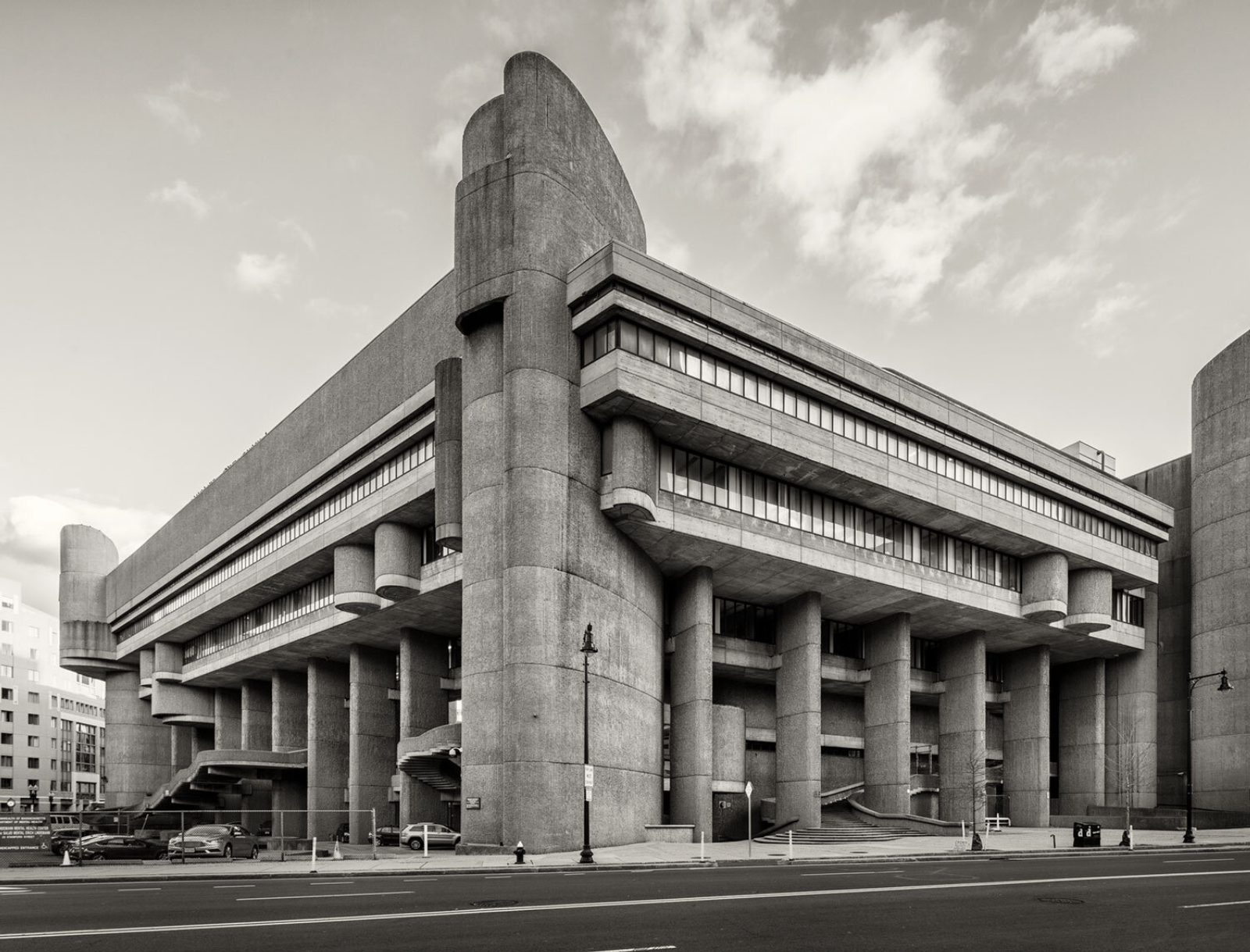Awards
Advocacy
Citation of Merit
Civic
An Advocacy Citation of Merit is given to the Massachusetts Division of Capital Asset Management and Maintenance (DCAMM) for their leadership in the proposed redevelopment and reuse of the Charles F. Hurley Building as part of the Boston Government Services Center (BGSC) designed by Paul Rudolph from 1962-71. Following years of education and advocacy by local organizations and individuals laying the seeds that Boston’s brutalist architecture including the Government Center and Boston City Hall are extraordinary contributions to the city, DCAMM brought together an internal and external group of local experts to provide background and understanding for the Hurley project that seeks a viable solution to meet the state’s downtown office needs and a new life and preservation solution for the building. DCAMM and the group of experts that include the Boston Preservation Alliance, Docomomo US/New England, Bruner/Cott, OverUnder, environmental advocates, those with development expertise, and many from the community worked together to consider how a redevelopment project could be successful while also being a model for future preservation projects locally, nationally, and internationally. Docomomo US acknowledges the important and independent role the Massachusetts Historical Commission and State Historic Preservation Officer played in this project to reinforce their responsibility in this project that the building was eligible for the National Register of Historic Places and alterations, or demolition would trigger a response from their office. We find this type of objectivity between state agencies to be essential and refreshing considering examples in other states where politics forces agencies to contradict their own responsibilities. While the Hurley project is in an early phase of redevelopment, Docomomo US is encouraged by the process and acknowledges the agencies and advocates in their role to find a viable preservation solution.
“This Award acknowledges DCAMM and the Massachusetts Historical Commission and State Historic Preservation Officer for being ‘above board,’ taking input from concerned parties and the public, and adjusting course accordingly.”
Advocates: Massachusetts Division of Capital Asset Management and Maintenance (DCAMM); Boston Preservation Alliance; Docomomo US/New England; Bruner/Cott; OverUnder; Massachusetts Historical Commission and State Historic Preservation Officer
How to Visit
Location
Government Service CenterBoston, MA, 02114
Country
US
Case Study House No. 21
Lorem ipsum dolor
Designer(s)

Paul Rudolph
Architect
Paul M. Rudolph (1918-1997) was born a minister’s son in Elkton, Kentucky.
Inspired by architecture at an early age, Rudolph studied architecture as an undergraduate at Alabama Polytechnic (now Auburn University), and after a brief period in the Navy during WWII, he successfully completed graduate studies at Harvard under Bauhaus founder Walter Gropius.
Rudolph was a pioneering architect in Sarasota, Florida, a major figure of the ‘Sarasota School of Architecture,' which gained international attention for innovative solutions to the modern American home.
He was Dean of the Yale School of Architecture from 1958-1965, during which his best known work, the Yale Art & Architecture Building, was completed and became both a Modernist icon and a topic of controversy.
After his tenure at Yale, Rudolph continued during the next 30 years to create some of Modernism's most unique and powerful architecture.
Despite the wane in Rudolph’s popularity during the dominance of Post-Modernism in the late 70’s and 80’s, his work and legacy has had a profound impact on the architecture of our era.
Rudolph, who is today considered one of America’s great Late Modernist architects, was an inspirational mentor to those whom he taught. His former students include some of architecture’s most internationally respected architects such as Norman Foster, Richard Rogers, and Robert A.M. Stern, among many others.
Nationality
American
Other designers
Interior mural by Constantino Nivola

